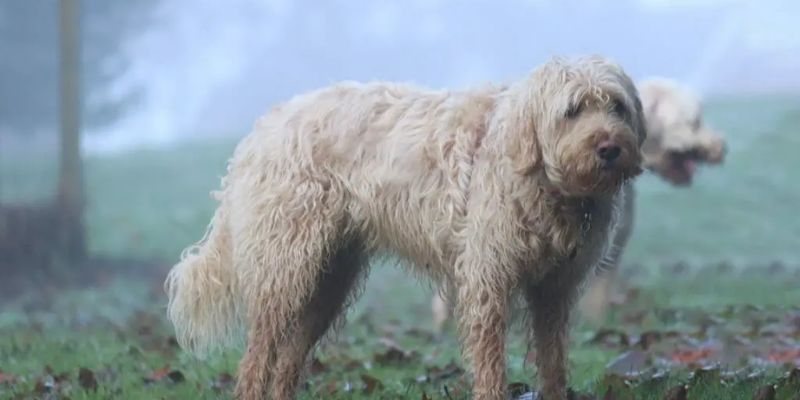If you’re considering getting a furry friend but have allergies, the question of whether Otterhounds are hypoallergenic may have crossed your mind. In this article, we will delve into the topic and provide you with all the information you need to know about Otterhounds and allergies. So, let’s jump right in!
Are Otterhounds Hypoallergenic?
Before we dive deeper into the subject, let’s take a quick look at some bullet points about Otterhounds and their hypoallergenic nature:
- Otterhounds are not considered hypoallergenic dogs.
- They have a double coat that sheds moderately throughout the year.
- Their hair can potentially trigger allergies in sensitive individuals.
- Regular grooming and cleaning practices can help minimize allergens.
Now that we have a snapshot of the main points, let’s explore the topic in detail.
Understanding Hypoallergenic Dogs
To understand whether Otterhounds are hypoallergenic, it’s important to grasp the concept of hypoallergenic dogs in general. Contrary to popular belief, hypoallergenic doesn’t mean completely allergy-free. Instead, it refers to dog breeds that are less likely to cause an allergic reaction in individuals with allergies.
Otterhounds and Allergies: The Facts
Here are some key facts to consider regarding Otterhounds and allergies:
- The Double Coat Dilemma: Otterhounds possess a distinctive double coat consisting of a harsh, dense outer coat and a softer, insulating undercoat. While this coat provides excellent protection in water, it also means that Otterhounds shed consistently. Shedding can contribute to the presence of allergens such as dander in the environment.
- Dander and Allergies: Dander, tiny particles of dead skin shed by animals, is a common allergen. When a person with allergies comes into contact with pet dander, it can trigger symptoms such as sneezing, coughing, and itchy eyes. Unfortunately, Otterhounds are known to produce dander, making them less suitable for individuals with allergies.
- Allergen Management: While Otterhounds may not be hypoallergenic, there are measures you can take to manage allergens effectively if you decide to bring one into your home. Regular grooming, including brushing and bathing, can help minimize the amount of loose hair and dander in the environment. Additionally, keeping your living space clean, using air purifiers, and designating pet-free zones can also help reduce exposure to allergens.
FAQs about Otterhounds and Allergies
Let’s address some frequently asked questions regarding Otterhounds and their hypoallergenic nature:
Q: Can people with allergies live with Otterhounds?
A: While it’s possible for individuals with allergies to live with Otterhounds, it’s important to note that allergies can vary in severity. It’s recommended to spend time with an Otterhound before making a decision to assess your personal reaction.
Q: Are there hypoallergenic dog breeds available for allergy sufferers?
A: Yes, there are dog breeds that are considered more hypoallergenic due to their low-shedding coats or hairless nature. Some examples include Poodles, Bichon Frises, and Portuguese Water Dogs.
Q: Can allergy medications help alleviate symptoms caused by Otterhounds?
A: Allergy medications can help manage symptoms triggered by pet dander, including those caused by Otterhounds. Consult with your healthcare provider to determine the best course of action.
Q: Are there any alternative options for individuals with allergies who want a dog?
A: Yes, individuals with allergies can consider hypoallergenic or low-shedding dog breeds, or even explore the option of non-allergenic pets such as fish or reptiles.
Q: Are there any specific grooming practices to reduce allergens in Otterhounds?
A: Regular grooming, including brushing with a high-quality deshedding tool, can help remove loose hair and minimize dander. Bathing your Otterhound regularly with a hypoallergenic dog shampoo can also aid in reducing allergens.
Q: Can allergies develop over time with exposure to Otterhounds?
A: It is possible for allergies to develop or worsen over time with repeated exposure to allergens. If you already have allergies, it’s crucial to consider this potential risk before bringing an Otterhound into your home.
Wrap Up
In conclusion, Otterhounds are not hypoallergenic dogs due to their shedding and dander production. While they may not be the best choice for individuals with allergies, proper grooming practices and allergen management can help mitigate the presence of allergens in your home. It’s important to assess your personal sensitivity to allergens before deciding to bring an Otterhound into your life.
Remember, if you have allergies and are considering adding a furry friend to your family, exploring hypoallergenic dog breeds or alternative pet options might be a better fit for your needs.





